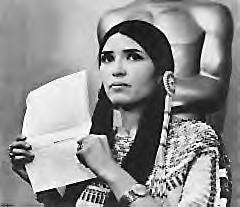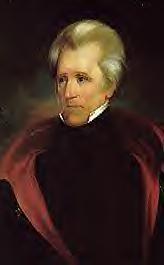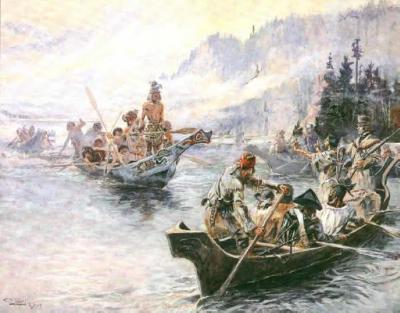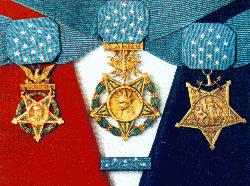|
|
|
|
This Date in History
Adapted by Vicki Lockard from This Date in History
| March 25, 1886: | After escaping from the San Carlos Reservation, Geronimo, and his followers, went to mexico. However, the Mexican Army had orders to kill the APACHEs. General Crooks orders were to kill them as well, if they would not peacefully surrender. Geronimo decided to talk to Crook about returning to the reservation. On this date, they met in the Canyon de los Embudos, a few miles into Mexico. Geronimo asked Crook his terms for surrender. Crook explained their surrender had to be unconditional and would probably include being shipped to Indian Territory or Florida as prisoners. Geronimo asked if they could be returned to San Carlos after 2 years. Crook felt this was a good compromise, and was sure he could convince his supervisors of its validity, so he agreed. However, Crook would be unable to convince Washington to accept Geronimo's suggestion. While many of his followers would surrender, Geronimo would not. |
| March 26, 1682: | Today, on the Mississippi River, la Salle first meets the NATCHEZ Indians. This will be the first recorded meeting of Europeans with the NATCHEZ. Fellow explorer Henri de Tonti will be the first to meet them. |
| March 27, 1973: | Sacheen Littlefeather refuses Marlon Brando's Oscar as a protest against media and governmental mistreatment of American Indians. |

| March 28, 1953: | Jim Thorpe dies. |
| March 29, 1965: | New York State want to convert a 2 lane road into a limited access freeway. The land will divide the SENECA Reservation in two. The SENECAs take the matter to court. Today, the Supreme Court will rule that eminent domain laws apply to reservations, as well as all other lands. It would be 5 years before Congress allocated the funds to pay for the lands that were lost. The SENECAs will call the freeway the "Berlin Wall". |
| March 30, 1893: | The "agreement" forced on the 2 KICKAPOO Chief's on September 9th, 1891, is approved by Congress. An investigation held many years later, would show the signatures of many dead Indians, or fictitious names. |
| April 1, 1866: | On this date, congress overrides President Andrew Johnson's veto of the Civil Rights bill of 1866. The bill will give equal rights to all persons born in the United States. The one exception to this is that Indians are excluded. |

Andrew Jackson
| April 2, 1975: | A three day National Conference on Indian Water Rights is convened today in Washington,D.C. Representatives from almost 200 tribes will attend the meeting. |
| April 3,1861: | White settlers have started moving onto DAKOTA lands, near New Ulm, Minnesota. In an effort to improve their illegal standing, today, they petition President Lincoln for protection against the Indians. This will eventually lead to the DAKOTA conflict which resulted in the mass execution of 38 DAKOTA. |
| April 4,1805: | Lewis and Clark send many objects they have collected so far, including Indian goods, to President Jefferson. . |

Lewis and Clark on the Columbia by Charles M. Russell
| April 5,1832: | After being removed from Illinois in 1831, Black Hawk, and his SAC followers lived in Iowa. Wanting to return to their old home land, today, Black Hawk, and almost 1000 of his tribe, will cross the Mississippi River back into Illinois. Not much later, they will be attacked by the whites. |
| April 6, 1832: | Black Hawk returns to Illinois |
| April 7, 1984: | The first meeting between the eastern and western CHEROKEES since the 1800s is held today. |
| April 8,1944: | Ernest Childers is awarded the Congressional Medal of Honor today. A CREEK from Oklahoma, and a First Lieutenant with the 45th Infantry Division. Childers received the Medal of Honor for heroic action in 1943 when, up against machine gun fire, he and eight men charged the enemy. Although suffering a broken foot in the assault, Childers ordered covering fire and advanced up the hill, single-handedly killing two snipers, silencing two machine gun nests, and capturing an enemy mortar observer. |

|
|
| Canku Ota is a free Newsletter celebrating Native America, its traditions and accomplishments . We do not provide subscriber or visitor names to anyone. Some articles presented in Canku Ota may contain copyright material. We have received appropriate permissions for republishing any articles. Material appearing here is distributed without profit or monetary gain to those who have expressed an interest. This is in accordance with Title 17 U.S.C. section 107. |
|
Canku Ota is a copyright of Vicki Lockard and Paul Barry. |
|